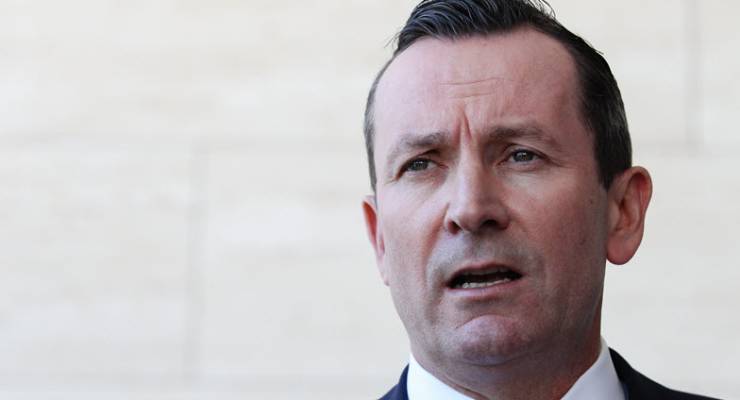
Canberra journalists devote a quite a bit of time to combing through federal politicians’ disclosure logs, wherein such gems as Sussan Ley’s property-buying trip to the Gold Coast and Julie Bishop’s jaunt to the Portsea Polo can be found. But spare a thought for journos in Western Australia — members of WA Parliament receive almost $80,000 in allowances every year, and they do not have to disclose what they do with that money anywhere.
Newly elected Premier Mark McGowan has made moves to rein in members’ entitlements since taking office. He froze state MPs’ salaries for the next four years in May, a gesture almost immediately undercut by the revelation that a tribunal determination the previous year (but coming into effect after Labor took office) had delivered an increase to their motor vehicle allowance that would increase their pay by $25,000 regardless. McGowan eventually scrapped it again, but he didn’t require MPs to repay any amounts they’d received in the interim.
All members of parliament in WA receive a base rate of $156, 536 per year, and any office holder gets an additional amount — starting at $167,079 for a member of a standing committee and topping out at $355,681 for the premier.
In addition to their base remuneration MPs are paid a base electorate allowance of $78,000 per year — members for regional electorates receive additional money, in some cases pushing the total to over $100,000.
The Members of Parliament Tribunal Determination states:
It is intended that this Allowance will be used for expenses incurred to assist with serving the electorate, including:
- information and communication technology, including mobile phone use, newsletters and internet publications;
- awards and support for community groups or individuals;
- hospitality and entertainment associated with a Member’s official business;
- advertising, other than for the purposes of campaigning, electioneering or political party promotion;
- costs associated with Electoral Management Systems; and
- stationery and printing.
The allowance is ultimately spent at the member’s discretion. The only limitations placed on the allowance is that it “shall not be used for campaigning, electioneering or political party promotion”.
But, as Martin Drum, associate professor of politics at Notre Dame Australia, pointed out to Crikey, MPs do not have to disclose how they spent their allowance, and no one would ever know if members just pocketed the cash.
“Given it can be taken as income, proving it was spent improperly would be nigh-on impossible,” he said.
Other extras, like accommodation and transport allowances, must be actively claimed, but the electorate allowance is simply paid out automatically alongside their salary.
Ian Cook, senior lecturer in Australian Politics at Murdoch University, says the lack of oversight is “troubling”.
“The legislation makes it very clear that the allowance can be spent at the member’s discretion, and there’s no provision, no indication of any requirement for reporting,” he said.
“So it’s very hard for someone in the electorate to hold their representatives to account for what they spend, and it adds to this sense of distrust in politicians.”
MPs salaries in Western Australia are set by the Salaries and Allowances Tribunal, which also has responsibility for determining rates of pay for the state’s governor as well as judges, magistrates, local government CEOs and elected members, and others.
Crikey asked McGowan if there was any plan to make the administration of the allowance more transparent, or require MPs to refund any of their electoral allowance not used for the purposes set out in the determination, but we didn’t hear back before deadline.
A spokesperson for WA Opposition Leader Mike Nahan told Crikey determining and reporting on the remuneration to be paid to MPs was a process that was “independent of members of parliament”.
Cook said it was “absolutely” within the power of politicians to make the process more transparent. For example, the tribunal followed McGowan’s direction that they reconsider their determination regarding the motor vehicle allowance.
The tribunal does mention in the future considerations section of its most recent determination in April 2016 that “in addition to continuing examination of remuneration provided to Members of Parliament, the Tribunal highlights the following issues that it intends to consider … levels of accountability applied to Electorate Allowances”. However, there is no clear indication as to how or when that might happen.








Crikey is committed to hosting lively discussions. Help us keep the conversation useful, interesting and welcoming. We aim to publish comments quickly in the interest of promoting robust conversation, but we’re a small team and we deploy filters to protect against legal risk. Occasionally your comment may be held up while we review, but we’re working as fast as we can to keep the conversation rolling.
The Crikey comment section is members-only content. Please subscribe to leave a comment.
The Crikey comment section is members-only content. Please login to leave a comment.